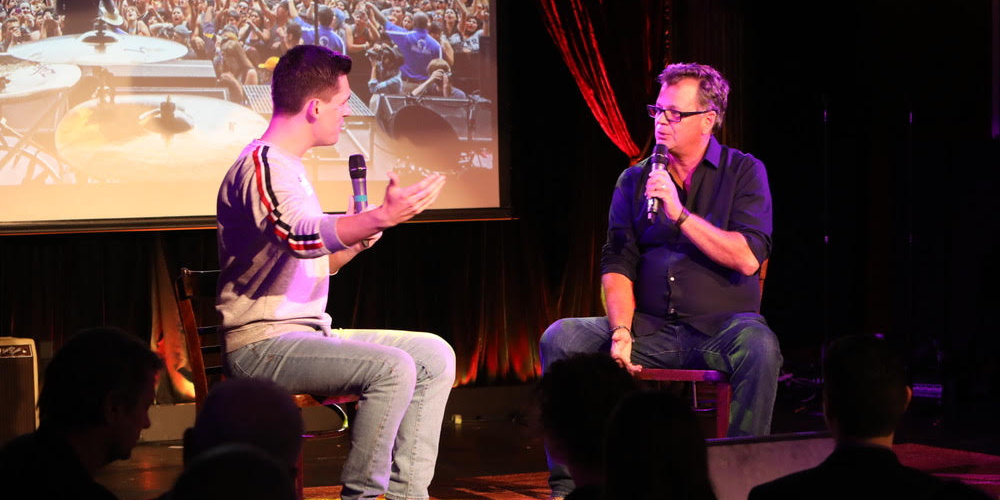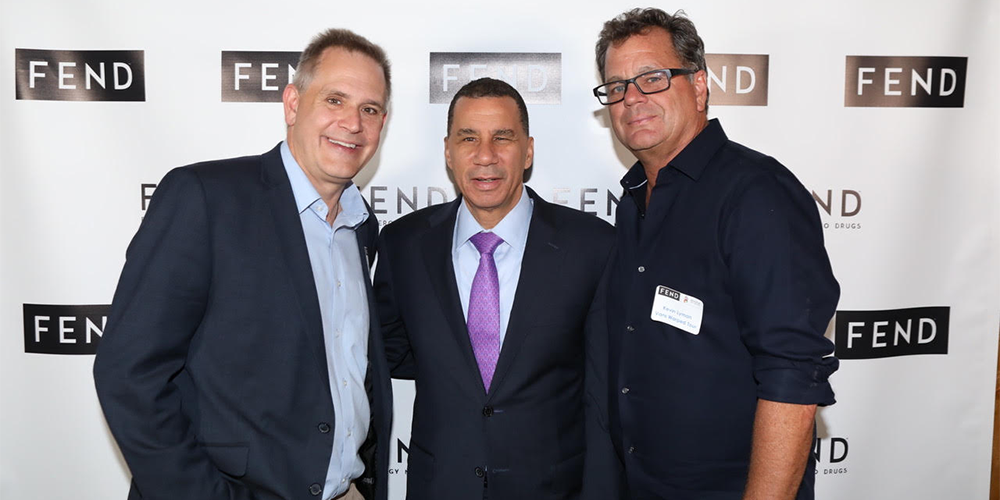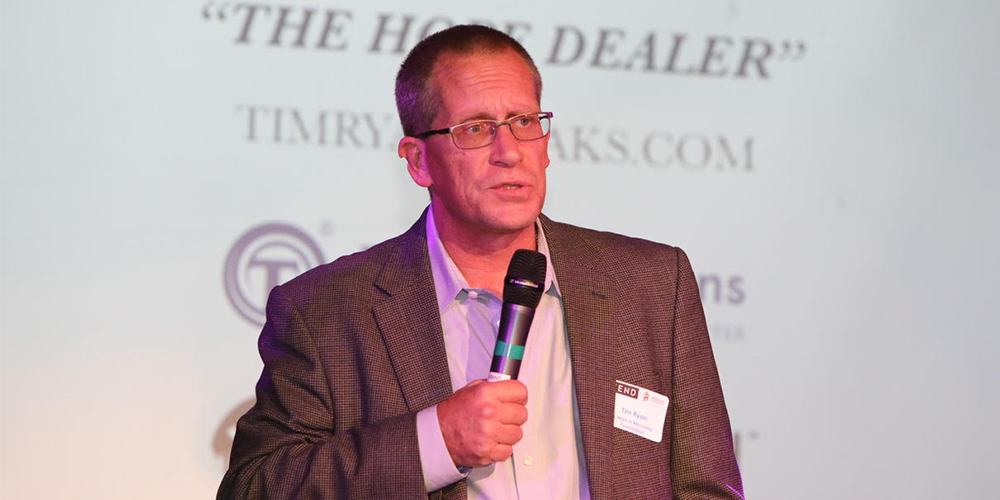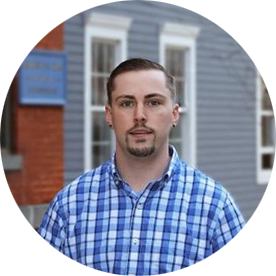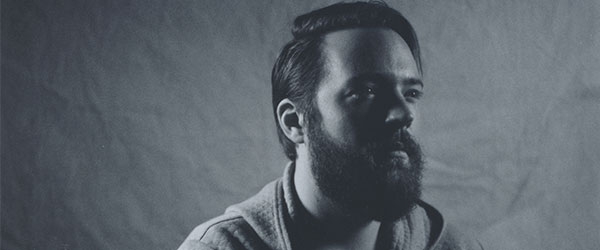Made up of the seven-oldest siblings of the 13-member Wolfgramm family, 13 Crowns' ages range from 12 (drummer Nora) to 21 (keyboardist Eve), ...

iThe opioid epidemic has hit crisis point. In fact the situation is so bad that opioid overdoses are killing as many Americans as guns. It’s time to take control of our own health and get the facts. It’s time to take a stand against opioids.
— — —
/FƐND/
DEFINITION:
transitive verb
To defend; keep or ward off; repel
— — —
Get involved in combatting the opioid epidemic by downloading the FEND app.
— — —
The following are interviews conducted by SunCity Paradise’s Founder and CEO, Sean Ritchie, at the FEND Movement launch party in New York City at the Cutting Room.
— — —
Sean Ritchie: How did your and Warped Tour’s involvement come to be with FEND?
Kevin Lyman: It was interesting, because iPug, a technology company, was talking to a friend of mine and said, “You have to meet my friend Kevin. He’s always done activism through his projects.” So, they came in and we had a bunch of meetings in my backyard and all these people were coming. My 91-year-old neighbor actually came over and asked, “Senior Lyman, why are all the people in the suits and ties coming to see you? Are they coming to arrest you or sue you?” It was a different world for me, because of who I am.
We said, “Look, Warped Tour kids are engaged. They’ve always been engaged. I think this would be a great opportunity to work with and develop a proper product.” So, it moved very quickly and we got the first incarnation of the app March 1st when we announced the original Warped Tour Lineup. Basically, we are building a baseline of data and technology in behavioral change and education that we hope to white label and take into every genre of music or sports. It could go to golf or NASCAR. People can build their own FEND Movement, just backslash something.
It’s fun. It’s really where I wanted to go post Warped Tour, more into education and philanthropy. That’s the kind of direction I really want to expel me energy into. Producing a tour, I think I’ve done everything in that format that I could possibly do. There’s a lot of people putting on great shows now. So, we’re going to have one great summer and then I can go do this. I also took a job as a professor at [University of Southern California]. I start in August. I guess I’m fulfilling my vision in life where it’s about music philanthropy and education.
SR: Amazing. Why do you feel the opioid epidemic is particularly important to tackle these days?
KL: Oh my gosh, you travel the country, and I’m one of those lucky people that has 39-mini-family reunions every summer. I travel on every tour. I get to talk to people, and almost every story is how someone’s hooked — nephews, the crew people, everyone. You can’t tell me that Michael Jackson, Tom Petty and Prince haven’t been on my mind. I was lucky enough to work with those artists in some way in my life, and seeing that I know that there’s a long tale there.
I also believe that sometimes we can be duped as a public. The more I dug into the books that were written about big pharma and doctors, the more I started putting it together in my life. I just said I’m going to give it a shot. That’s all you can do is give it a shot. But, we hope that this is something that can be around for the next 20 years, because I believe it does change all by education.
SR: A big part of the FEND Movement is technology, the app included, why do you think including technology is the best way to tackle this problem?
KL: Well, I think it came from me walking through an airport, looking over shoulders and thinking everyone must be working on their phones, but I saw games. I told my wife, “Oh my gosh, everyone’s playing games!” She goes, “Of course they are you dummy, you’re the only one that works on your phone all day long.” But, I also know our audience and they’re driven by games. Gaming is massive now. You can sell out arenas with gaming.
So, I thought that we were going to have to get to people in the way they are living their lives. Jacqui [Burgess] and Steve [Huff] with the technology, and me with that street-level [knowledge] and the connection with people, could blend it all together. Gamification is going to be big. We love games. We love our punch cards and our rewards cards, so why not reward people for learning.
SR: Lastly, how do you suggest someone get involve and connect with FEND?
KL: The app is up, it’s FEND — Full Energy No Drugs. You can also connect at We Are FEND. You can go to the Android or Apple stores, download the app and start following along.
— — —
SR: How did you become involved with the FEND Movement?
Governor David Paterson: I’m a pretty recently involved person. I spoke at a luncheon in April and one of the people attending the function for the Police Athletic League, another great charity, was Huff. He, being involved with Lyman and so many other people, got me interested and we got on a conference call the next week. Here I am, a few weeks later, to add my efforts, or anything else I can share to this movement, to try to educate and publicize the terrible dangers of opioids in our era.
SR: Why, to you, is this specifically important to tackle?
GDP: Years ago, in 2009, I signed legislation that I had worked on for 15 years when I was a legislator. I could never get a Governor to sign it. I realized I got a chance to do it myself. It was to limit the penalties for what was known in New York as the Rockefeller Drug Laws. There were terrible, terrible penalties, 30-percent worse at the time than the second toughest state, Ohio. Literally putting people in prison when they needed to receive treatment. Sometimes, putting people in prison in the same room as someone else who was doing drugs when the raid came.
Because I had this interest in what happened with the illegal substances, I always knew then that there was a pretty good number of people who were getting addicted, seriously ill and sometimes dying from legally-prescribed drugs. As time has gone on, and the pharmaceutical industries have expanded, they have a drug for everything now.
I found it interesting when Huff first told me about this. I had watched a “60 Minutes” special about nine-months ago kind of exposing the fact that government agencies had really tamped down their investigating components in this area. I knew I wanted to do something. There are a million things that make you want to do something, and sometimes it walks right up to you and shakes your hand. That’s exactly what Huff did.
SR: Part of this issue is, I believe, there is a stigma attached to drug use. I think removing that stigma will cause people to want to come out, talk about it more and make awareness more possible. Talk a little bit about how it shouldn’t be looked at in this negative light, and how it is a disease and should be treated as such.
GDP: Even when we talked about the illegal drugs that people experimented with, and still on the national level marijuana is considered an illegal drug, there were all sorts of myths about why some substances were legal and some were not. It really had more to do with lobbying than any pronouncement that medical professionals made. In this case, a person who comes addicted to an opioid that was prescribed to them should feel no shame at all. There shouldn’t even be an inference drawn that it had anything to do with your conduct. Most of them listened to their doctors. Isn’t that just like listening to your parents or guidance figures? This is considered one of the noble things you can do.
When I was a kid, and got prescribed medications, I didn’t like swallowing pills, so I didn’t listen to my doctor at all. But, these people listened to their doctors to their own detriment. It’s a detrimental reliance caused by opioids that were miscast, sometimes misunderstood and sometime deliberately sold to people even when the manufacturers knew they were dangerous. If anybody should be feeling any shame, it’s not you who were taking the drugs they were prescribed, it’s the people who allowed this to happen. No shame. No remorse. Come forward, because you will find there’s a community of helpers right there waiting to bring you back to where you were before it all happened.
— — —
SR: How did you get involved with FEND?
Tim Ryan: I got a message from someone on LinkedIn and next thing Huff called me and here we are.
SR: Why is it important to you to be involved with such a movement?
TR: Because I struggled with addiction for 30-plus years of my life — opioids and heroin the last 12 years. I got sober in prison. Lost everything. Turned my life around, and on my 21-month sobriety date my son, Nicholas, died from a heroin overdose. So, I am in the thick of the trenches. I work for a drug-treatment center. I run a nonprofit. I speak all over the country. I published a book and had a documentary, but I’m the guy that gives hope to the hopeless. I’m sick and tired of burying people.
SR: A lot of people might not want to talk about it. It’s something that they want to keep private. Why, for you, have you wanted to voice your experience?
TR: I had to, because I lived in shame, guilt, stigma, remorse. I turned my wife into an enabler where she didn’t tell anyone. [I had to] with what’s happening out here now, this is the number-one killer in the United States. What I try to do, is motivate people to put their hands up and say, “Hey, I made a bad choice and I’m struggling. I need help.” There’s help out there, but we have to drop the stigma. If somebody has cancer, we’re having fundraisers and doing whatever we can. But, if someone struggles with substance abuse, “Oh, that’s just will power. It’s choice.” We need to change the whole conversation.
SR: How would you suggest someone get involved with a movement like FEND, or in any movement combatting the opioid epidemic?
TR: There are so many organizations and I think FEND is perfect for what I do, because it’s getting the younger generation. They live on their phones, and that’s why getting involved in the technology is so important. People don’t know what they just don’t know. There’s a big movement out there now, but we need more people coming together and getting a part in one-big solution.
— — —
SR: How did you become involved with the FEND Movement and the Preventum Initiative?
Jacqueline Burgess: The Preventum Initiative is a nonprofit that started in December last year. My background is in research, injury prevention and public health. The idea for the Preventum Initiative is we bring together evidence-based research and the latest technology. We focus that on solving complex, public health problems. So, it could be obesity, diabetes or violence against women, but our current focus is on the opioid crisis. That’s everyone’s focus right now in public health.
The idea with FEND is sort of turning public health on its head. Rather than preaching to youth and telling them, “Just say no,” or, “Don’t do drugs,” what we’re trying to do is give youth information on opioids, particularly prescription painkillers. Let them know that they are highly addictive and dangerous. They’re not your average recreational drug. If they are prescribed prescription painkillers, what’s a safe way to take them? Don’t mix them with alcohol, cough syrup or Xanax. It’s talking about how addictive it is, or how easy it is to overdose on them. Also, what are the signs of an opioid overdose? Then, how do you respond if you saw someone overdosing? It’s arming them with the information so they can make informed choices. Hopefully, it empowers them to make a stand against opioids.
SR: When I was reading up about FEND and the Preventum Initiative, data and technology were, in a way, the cornerstone of both to better target the problem and effect change at a greater rate. How important is it to use that data and technology to better target this problem?
JB: With traditional public health models, you have your pamphlets, billboards and television commercials, but that’s not where youth are hanging out. They are looking at Netflix or YouTube. They are on their phone. So, the mobile device is the perfect channel for reaching these kids. That’s where they are. It’s giving them information in ways that is relatable to them. It’s giving them data, rather than preaching. It’s making the data simple and relatable. It’s using gamification to reward them. Gamification could be anything from your airline rewards cards or a coffee shop loyalty vouchers. It’s really about motivating youth. Technology is a great way of doing it. 60 percent of people never have their phone more than four-feet away from them at any time of the day or night.
— — —
Get involved in combatting the opioid epidemic by downloading the FEND app.


With Montego Bay's famed mountains providing a picturesque backdrop, this resort is a wonderful location for family-minded travelers.


Past the upscale decor and modern vibe, Cirque de Soleil can be experienced here. Vegas anyone?


A short taxi ride from downtown Cancun, this picturesque resort is close enough to enjoy the hustle and bustle whenever, but far enough away to escape and relax.


Contemporary decor runs throughout this modern property, quaintly nestled adjacent to Central Park.








